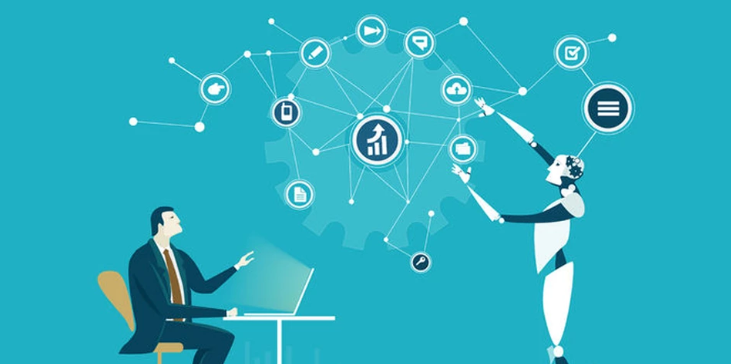According to the Society for Human Resource Management research, about 1 in 4 organisations are using AI for their HR operations. However, the shift is recent.
Moreover, the SHRM conducted a survey last year. It gathered responses from nearly 2366 HR personnel across the US industries. This survey revealed that dependency on AI has increased recently, and companies are prioritising it in their HR functions.
The age we are living in is a technological one. Artificial intelligence has made its way into almost all industries, and HR is no exception. From basic HR functionalities to leadership roles, organisations are leveraging the power of AI. It results in a smooth, seamless and more productive HR department. So, how, in actuality, is AI helping to achieve it? Let’s analyse it together in this read. Here, we will discuss the impact of artificial intelligence on HR and its outcomes.
AI In the Recruitment Process
AI plays a significant role in making the recruitment process managed and efficient. How it does so, let’s see:
- With automated alerts, AI helps candidates apply for the right job that matches their requirements.
- Tools like HireVue help with resume screening. It helps choose suitable candidates from the talent pool.
- AI makes the process faster by responding to candidate queries and scheduling interviews. The example includes Mya.
Impact On Employee Engagement
AI is helping make feedback communication between managers and employees efficient. 15Five is an example of such a tool. Through this tool, managers can give continuous feedback to employees. Plus, AI also helps provide employees with custom learning courses. These are offered in accordance with the skill gaps and employee goals. EdCast is a good example of that.
Optimising Workforce Management
Workforce management is a complex task. However, AI integration has made it a lot easier and simpler. With tools like predictHR, the HR department can have important insights related to various aspects. By analysing trends and data, a tool can help them forecast:
- Which department would need staffing soon.
- Which employees can leave.
- And also identify employees with strategic potential.
Employee Onboarding Assistance
AI platforms like Talla and Enboarder ease the time consuming task of employee onboarding. They guide new hires regarding:
- Form filling.
- Training material.
- And also prepare custom onboarding plans, etc.
Data Driven Decision Making
With AI, HR does not have to gather and analyse large amounts of data. Instead, tools like ADP workforce provide comprehensive and efficient data for all essential factors. The data offers quick ideas regarding areas for improvement and opportunities. This ultimately leads to sound decision making based on solid evidence.
Fair Employee Performance Assessment
Employee performance management has reached a new level of fairness and transparency since integrating AI. For instance, using Workday, HR can have reliable insights about:
- Employee performance.
- Goal progress.
- And areas for improvement, etc.
This leads to more transparent and unbiased performance assessments. These tools not only ensure transparency in the process but also promote trust in company culture.
Limitations of AI in HR
AI certainly has been proven to greatly assist HR operations in companies of all sizes. But there are challenges, too. Various theses and research writing on HR have worked on identifying these limitations. However, the best thesis writer was a group from the University of Pennsylvania. They described these complexities regarding AI based HR in detail. From privacy and security to ethical concerns, the research covers each in detail.
Final Note!
All in all, merging artificial intelligence with HR is a smart step. It helps allocate resources accurately and manage the workforce optimally. Further, the fair performance assessment boosts employee confidence and trust. The rapid progress of AI-merged HR platforms has smoothened and transformed how HR departments work. They are now more productive, efficient, and employee focused, meeting organisational goals effectively.
The research shows 61% of HR professionals are optimistic about using AI and its outcomes in their HR work. However, the challenges should be addressed carefully with practical solutions. By doing so, companies can acquire a balanced, smarter and efficient workforce cost-effectively.

